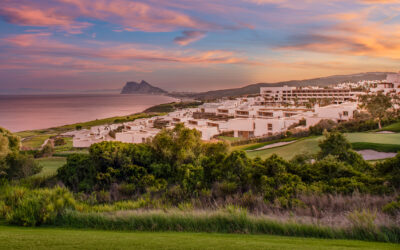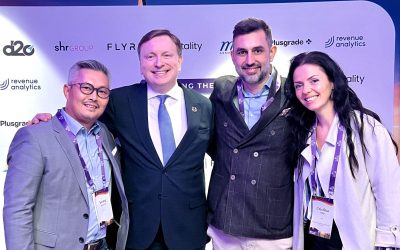Strand Hotel. Hotel Founder Erling Falch Monsen hired Young Ngoc Nguyen as a consultant and followed up by buying the old boat-people’s refugee hotel.
”Watch your belongings,” says Hotel Director Asle Prestegard, as if the Strand Hotel, by the Fish Market in Bergen, still has the same reputation as when Young Ngoc Nguyen arrived as a boat refugee in 1978. The hotel was once a regular hangout for prostitutes, drunks, refugees, and even a horse, according to Hans ”Hansemann” Bru, who still runs the bar in the hotel he took over in 1996.
The story goes that years ago one of the guests brought a horse up to the sixth floor, but he could not get it to back down without shooting it. It seems that horses can walk up stairs, but not down.
In those days, the Strand Hotel was a place where no Bergen inhabitants went. Likewise, employees did not dare to say they worked there. But for Nguyen and his family, and other refugees, the notorious hotel was thought to be like heaven.
”The first meal we ate in Norway was only butter, a rare treat we could only imagine in Vietnam,” said Nguyen. “We stocked up towels and soap from our rooms, which we thought would come in handy during the next war. My parents always repeated, long after we arrived in Norway, that there was no question whether there would be war; the question was when. We had never experienced anything but war.”
Chained for three weeks
It has been a long road, from the time in Vietnam when Nguyen and his younger brother were chained to a table for three weeks by their family to keep their escape plan secret, to his family’s reception at the Strand Hotel. Today, Nguyen sits in a business meeting at the Strand Hotel with hotel entrepreneur Erling Falch Monsen, and his hotel manager and right hand, Asle Prestegard.
”Thanks to the management tool from Nguyen’s company, d2o, we can sit anywhere in the world see an overview of our hotels’ performance, right down to the productivity per employee,” said Prestegard. “This tool has made it possible for us to grow from one to three hotels with the same management team as before.”
In 2008, the Bergen Hotel Group, with Falch Monsen in charge, became a client of Nguyen’s company, d2o. The same year, the hotel group expanded and took over Nguyen’s old refugee residence, the Strand Hotel.
Nguyen created d2o to develop a management tool for the hotel industry. Today, d2o is used by 60 percent of the Norwegian hotel market. Nguyen started the company in 2000 with 10,000 dollars of capital and has since gone from having an empty bank account the first year of operation, to running an extraordinary money machine. This is a huge change in contrast to Nguyen’s first customer meeting in Copenhagen when he traveled by ferry to Denmark for one dollar to save money.

Doubled with management
“You are very well positioned compared to your budget, although the trend is roughly in line with last year,” explains Nguyen during his meeting with Prestegard. “You could probably benefit from having budgeted a little more aggressively.”
Hotel Director Prestegard turns a bit on the chair, while the hotel owner Falch Monsen leans forward at the table. ”It could be sensible to hold back a bit,” said Prestegard. “You would ensure a larger bonus,” answer Falch Monsen.
Falch Monsen, Prestegard and Nguyen have moved from the reception at the Strand Hotel to his company’s meeting room at the Scandic Bergen City. Flach Monsen bought Scandic Bergen City in 1976 when he went from being a bartender at the Hotel Norge to buy an apartment building with 64 apartments and seven stores for 230 thousand dollars.
Shortly after the purchase he had to sell the apartment building and move into a small apartment with his wife and children to avoid bankruptcy. His bank account was often so empty that he began to rip off unstamped stamps on incoming mail, to ensure that he had postage for outgoing bills. He continues to do so, even though he had a profit of 4.3 million dollars last year.
”d2o’s management tool was an important part of our success when we doubled our business after we took over the operation of the Neptune Hotel and Strand Hotel in 2008,” said Falch Monsen. “The system provides a daily overview of our entire operation from what we sell in the bar, down to our hourly labor costs.”
Norwegian bargaining champion
Hotel Director Prestegard turns in the chair again. He thinks he has heard enough good comments about d2o’s system. He plans to begin bargaining with Nguyen soon to buy an extended license.
After the negotiation, Prestegard commented, “It is an expensive tool, and the training is expensive, but we reached a reasonable price.”
Prestegard is the oldest of three brothers, all hotel managers, all clients of Nguyen, and all of them bargain on prices, regardless of offers they receive.
Nguyen said,”We have over 400 hotel customers, but I can honestly say that it is only the Prestegard brothers who bargain on the price every time they receive an offer, even after negotiations.”
Expensive or not
There is certainly no doubt that d2o’s reputation is growing. Last year the company achieved a profit before tax of 1.2 million dollars, a turnover of 3.2 million, giving a profit margin of 38 percent. And the growth is continuing this year. But these numbers are small compared to what is expected if all goes according to Nguyen’s plan.
Dreams about hotel chain
Perhaps it is no coincidence that Nguyen was led to develop systems that cut costs and increase productivity in the hotel industry. He received, after all, only a small bag of potato chips for Christmas.
”It took a few years in Norway before we began to celebrate Christmas,” Nguyen said. “For Christmas, my mother always bought a big bag of crisps, divided it into six parts, and put a packet for each of the children under the Christmas tree. Even if we knew what it was, we jumped with joy because we only got to taste this luxury once a year.
In Vietnam, the Nguyen family borrowed an half kilo of gold, in gold flakes to pay for its voyage, which began the night of April 2, 1978 and ended a few days later when they were picked up by a Norwegian tanker in the South China Sea. In Norway, his father continued to save in gold, even after the debt was paid, for fear a future war would make the Norwegian currency worthless, an experience he had suffered many times before.
The gold was saved for the children’s education that preferably would be in the fields of medicine or engineering, which was Nguyen’s parent’s dream. But Nguyen followed a different path. At the age of 14, he read an article that hotels in Asia would be a future growth industry, and from then on he developed a dream to start his own hotel chain.
Moving to the U.S.
”Within five years we will reach 30 million dollars yearly turnover, but this is only possible in the United States,” said Nguyen.
The time is past when Nguyen, a Vietnamese, with a youthful appearance, and first name Young, wore glasses with clear lenses to look more mature. This was while he was traveling throughout the hotel industry launching his new management tool that hardly anyone realized that they needed. Now, after ten years, the Nordic market has become too small, and the time is ripe to conquer the world and realize the American dream. This is all part of Nguyen’s strategy for achieving his original goal of owning his own hotel chain. “ If we get our solution to the US market, the rest of the world will follow,” Nguyen said.
Nguyen has submitted his US visa application, is purchasing a home in a gated community by an artificial lake, and will soon begin packing to relocate his entire operation, including his Belgian wife and two children, from Asker to Florida. A respected American hotel company has already signed an agreement with d2o, but Nguyen understands that the continued success in the United States hospitality market cannot succeed unless he is present. Despite intensive searching, he has yet to find one real competitor in the American market.
”We take the science of hotel management to a whole new level of detail” Nguyen said. “Traditionally, hotels manage by using annual budgets with delegated responsibility. Our process systematizes the daily rolling forecasts for all property departments, with a detailed assessment of food procurement costs and labor hours used. With our tools, a property’s chef answers for why he bought more fresh lobster than necessary, and why he had to sell the extra lobster as soup at a lower price.”
The next step is to develop management tools with integrated artificial intelligence that can take over the leadership role at a hotel by providing ongoing guidance on how the respective department managers can learn from their mistakes. When the chef has to make public the status of yesterday’s results, he will be measured against the best performance in a database, followed by advice on how he can improve.
Success will be big
Nguyen occasionally sports blue circles under his eyes due to his phone meetings at all hours, with customers that operate in different time zones, as far away as Hawaii. When asked what drives him, he replies that he has not thought about it much, because he has no trade-offs. ”Because of my background and education I do not have the same mindset as an ordinary Norwegian,” Nguyen says. “I do not think about whether I should have spent more time at the cabin. I love to succeed; I love to be the best.”
d2o and the dream of a hotel chain in ten years
”I envision that d2o will be sold in 10 years,” said Nguyen. “We know that the company will reveal exciting possibilities, and we will need capital. We have already received attractive offers to participate in hotel projects, but first we need to prioritize our US investment. ”My dream continues to be to succeed through my best abilities and talent,” Nguyen explains. And then you have to be more than a consultant?
”Yes, because that is the nature of our society. I do not like to think that the wealthiest men and women are better, but I must acknowledge that they have greater influence in society. I will play by the rules to get there, but I will use my power differently.”
Back at the hotel room
After his client meeting is over, Nguyen goes back to the hotel room at the Strand Hotel where the family stayed after arriving in 1978. He walks past the little toy shop, which still exists, and remembers how it once seemed like an amusement park for the little boy who had lived in a house of clay and bamboo rods, and worked weeding grass from peanut plants during the day and feeding animals in the evening.
He walks into the empty hotel room on the sixth floor. He thinks it looks smaller than when he stayed there with his parents and four siblings. He looks down at the fish market where he used to fish.
”We will certainly return to Norway from the U.S. Norway is the closest place I have to a homeland. But I will always remain a banana, as they call us in Vietnam,” Nguyen explains. “Asian on the outside, but European inside. No matter how hard we work and how good we are at school, Asians tend to be number two in this society. We are doctors, engineers, scientists, and so on, but we will never be among those who eat cherries with the elite. We do not manage the real language, and we do not have the full understanding of the culture because we have not gotten it with mother’s milk. It also takes time before other Norwegians invite us for dinner. We are often called by our first name in environments that typically use the last name. It is probably not only because of our names are difficult to pronounce. We will always translate, but we have nowhere to translate to. We are in a no man’s land. But I have a drive within me to prove that I can introduce the American dream in Norwegian society. My message to the second generation Norwegian-Vietnamese is that they do not have to be content becoming an engineer or doctor. My dream is to get power and use it differently. Like Robin Hood.
Source: Oystein.krogsrud@dn.no | www.dn.no





0 Comments